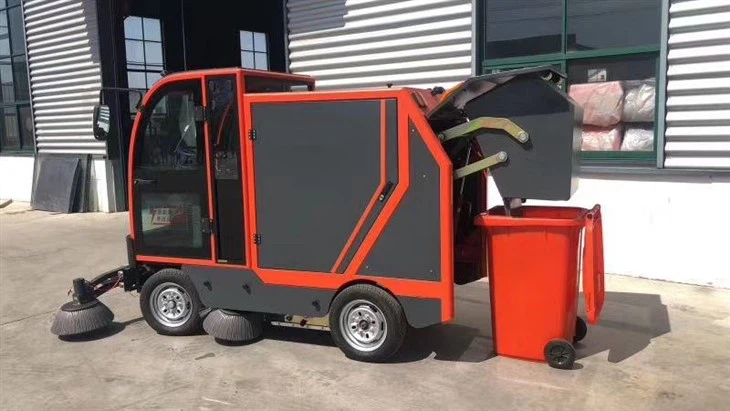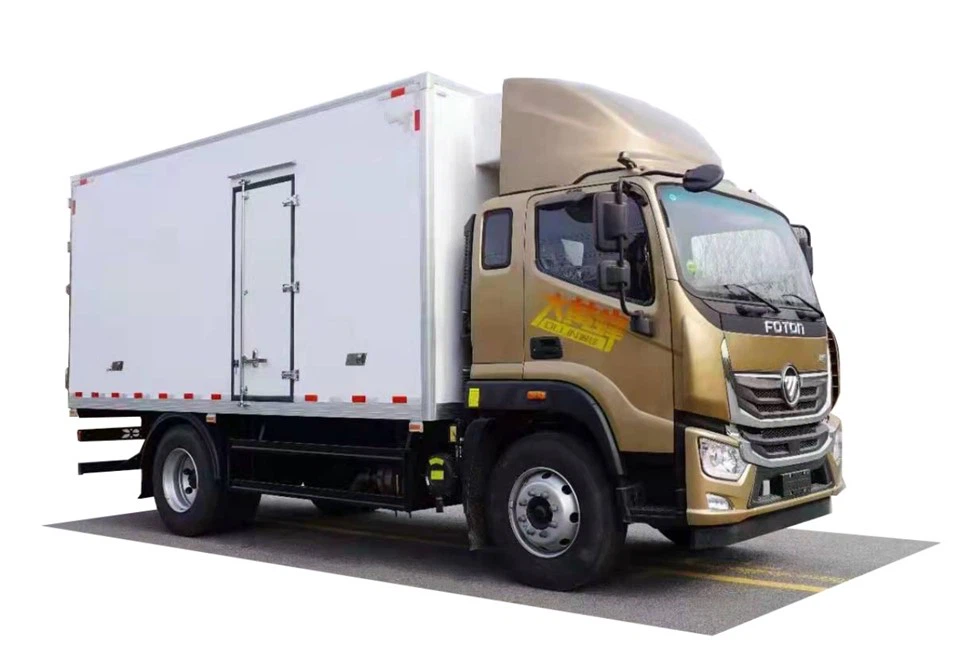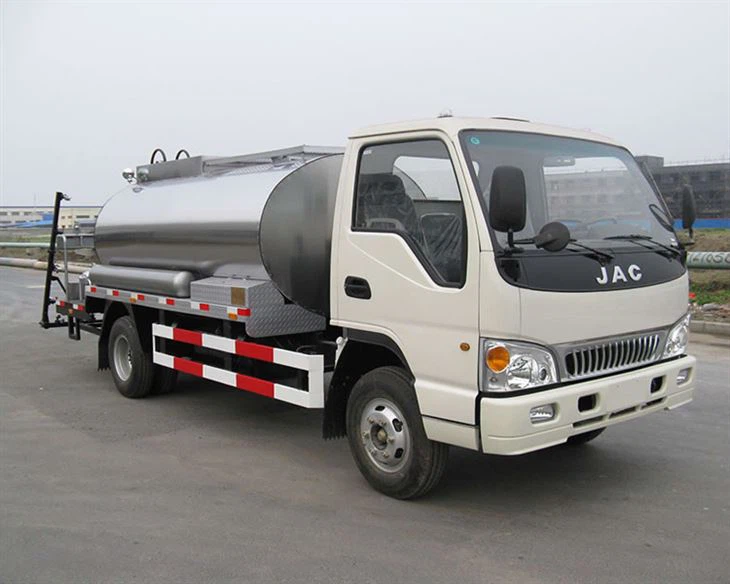Understanding Garbage Disposal Trucks: An In-Depth Guide

Garbage disposal trucks play a crucial role in waste management and sanitation. As cities grow and populations increase, the importance of properly managed waste becomes ever more pronounced. This article will explore the various aspects of garbage disposal trucks, from their design and functionality to their impact on the environment and community health.
Table of Contents
- What Is a Garbage Disposal Truck?
- Types of Garbage Disposal Trucks
- How Garbage Disposal Trucks Work
- Features and Technology
- Maintenance of Garbage Disposal Trucks
- Environmental Impact
- The Future of Garbage Disposal Trucks
- Practical Tips for Waste Management
- FAQs
What Is a Garbage Disposal Truck?
A garbage disposal truck is a specialized vehicle designed to collect and transport waste. These trucks are economically vital to urban areas, ensuring that trash is removed efficiently and maintained in public health standards. They come in different sizes and designs, tailored to meet the needs of various communities.
History of Garbage Disposal Trucks
The concept of garbage collection dates back to ancient civilizations, but it wasn’t until the 19th century that the modern garbage disposal truck emerged. Initially, horse-drawn carts were used to transport waste. The introduction of motorized vehicles revolutionized the waste management process, making it faster and more efficient.

Types of Garbage Disposal Trucks
Garbage disposal trucks can be categorized into several types based on their design and functionality:
1. Side-Loader Trucks
Side-loader trucks have a mechanical arm that collects waste bins from the side. This design allows for efficient garbage collection, especially in densely populated areas.
2. Rear-Loader Trucks
Rear-loader trucks have openings at the back where waste is thrown in manually or via a lift. This type is common in residential areas.
3. Compactors
Compactor trucks compress waste to maximize storage capacity. This is especially useful in urban settings where space is limited.
4. Front-Loader Trucks
Front-loader trucks are equipped with large forks that lift bins from the front. They are often used for commercial waste collection, suitable for larger businesses.
How Garbage Disposal Trucks Work
These trucks operate through a series of steps that begin with waste collection and end with disposal:
1. Collection
Waste is collected from designated pickup points. Operators schedule pickups based on waste generation rates.
2. Compaction
Once waste is loaded onto the truck, it is compacted to create more space, allowing for more efficient transport.
3. Transport
The trucks transport the waste to disposal sites, which could be landfills, recycling centers, or waste-to-energy facilities.
4. Disposal
Finally, the waste is disposed of based on the method most applicable for that material, promoting recycling or energy recovery whenever possible.
Features and Technology
Garbage disposal trucks incorporate several features and technologies:
1. GPS Tracking
Many trucks are now equipped with GPS to optimize routes and improve efficiency.
2. Smart Sensors

Smart sensors can detect when bins are full, reducing unnecessary pickups and saving resources.
3. Emission Control
Newer models use advanced emission control technologies to minimize their carbon footprint.
Comparison of Traditional vs. Modern Trucks
| Feature | Traditional Trucks | Modern Trucks |
|---|---|---|
| Fuel Efficiency | Less efficient | Highly efficient |
| Emissions | Higher | Lower due to advanced tech |
| Route Optimization | No GPS | GPS enabled |
| Waste Compaction | Manual | Automatic compaction |
Maintenance of Garbage Disposal Trucks
Regular maintenance is essential to ensure the efficiency and longevity of garbage disposal trucks. Key maintenance practices include:
1. Routine Inspections
Inspecting brakes, tires, and hydraulic systems regularly helps prevent road accidents and ensures safety.
2. Cleaning
Frequent cleaning of the truck’s interior and exterior prevents odors and accumulated waste from becoming a health hazard.
3. Scheduled Servicing
Regular servicing according to manufacturer guidelines keeps all components functioning well.
Maintenance Checklist

- Check tire pressure and tread.
- Inspect and change engine oil regularly.
- Examine hydraulic systems for leaks.
- Clean or replace air filters as needed.
Environmental Impact
Garbage disposal trucks can significantly impact the environment, both positively and negatively:
Positive Impacts
Efficient waste collection reduces litter, enhances community cleanliness, and promotes public health. Modern trucks with lower emissions also contribute to air quality improvement.
Negative Impacts
Improper disposal practices and older trucks can lead to increased emissions, noise pollution, and potential hazards to wildlife and ecosystems.
The Future of Garbage Disposal Trucks
The future of garbage disposal trucks looks promising with advancements in technology:
1. Electric Trucks
Electric garbage disposal trucks are emerging as a sustainable alternative, significantly reducing emissions and operating costs.
2. Autonomous Vehicles
Self-driving garbage trucks promise to revolutionize waste collection by improving efficiency and safety.
3. Smart Waste Management
Integration of Internet of Things (IoT) technology will enhance monitoring and management of waste collection processes.
Practical Tips for Waste Management
Implementing effective waste management practices can benefit communities:
1. Educate the Community
Provide educational programs on proper waste disposal and recycling methods to encourage responsible behavior.
2. Encourage Recycling
Promote recycling by providing multiple bins and clear instructions for separating waste.
3. Organize Events
Host community clean-up days to engage residents and instill pride in maintaining a clean environment.
FAQs
1. What types of waste do garbage disposal trucks collect?
Garbage disposal trucks collect residential, commercial, and industrial waste, including organic waste, recyclables, and general trash.
2. How often do garbage disposal trucks operate?
The frequency of garbage collection varies by location, typically occurring weekly or bi-weekly, depending on community needs.
3. Are garbage disposal trucks environmentally friendly?
Newer garbage disposal trucks are designed to be more environmentally friendly, featuring lower emissions and enhanced fuel efficiency. However, practices at disposal sites can impact their overall environmental footprint.
4. What can be done to improve waste management in my community?
Improving waste management can involve increasing recycling efforts, educating the community on waste disposal, and organizing clean-up events.
5. What is the lifespan of a garbage disposal truck?
The lifespan of a garbage disposal truck typically ranges from 10 to 15 years, depending on usage, maintenance, and the truck’s specifications.
6. Are there any regulations regarding garbage disposal trucks?
Yes, regulations can vary by state and city, focusing on emissions standards, operational guidelines, and safety requirements for waste collection services.
